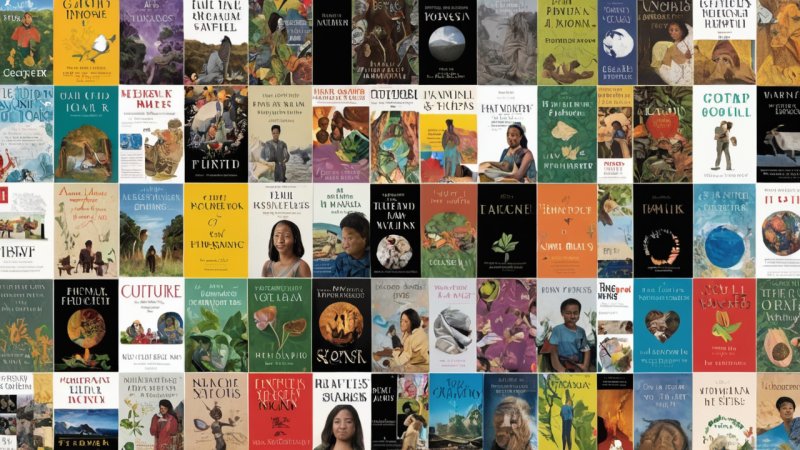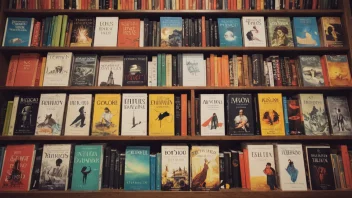In an increasingly interconnected world, the role of non-fiction literature in shaping global awareness cannot be overstated. Non-fiction books, ranging from memoirs and biographies to essays and documentaries, provide readers with insights into diverse cultures, historical events, social issues, and scientific advancements. This article delves into how non-fiction literature not only informs but also inspires action, fosters empathy, and cultivates a sense of unity in the face of global challenges. By examining various aspects of non-fiction's impact on global awareness, we can better understand its significance in our contemporary society.
The Role of Non-Fiction in Educating Readers
Non-fiction serves as a powerful educational tool that imparts knowledge and critical thinking skills. Unlike fiction, which often prioritizes narrative and character development, non-fiction is grounded in reality and fact. It encourages readers to explore complex topics with depth and nuance. Here are some ways in which non-fiction educates:
- Fact-Based Learning: Non-fiction books provide factual information that readers can trust. Authors often rely on research, interviews, and firsthand accounts to present their arguments, making it a reliable source of knowledge.
- Diverse Perspectives: Non-fiction exposes readers to different viewpoints and experiences, promoting a broader understanding of global issues. Books on history, culture, and politics illuminate the intricacies of societal dynamics.
- Critical Thinking: Engaging with non-fiction texts challenges readers to analyze information critically. This skill is essential in an age where misinformation can easily spread.
Fostering Empathy and Understanding
Reading non-fiction can bridge the gap between different cultures and experiences, fostering empathy and understanding among readers. Personal narratives, in particular, play a crucial role in this endeavor. Books like 'The Glass Castle' by Jeannette Walls or 'Educated' by Tara Westover offer intimate glimpses into the authors' lives, allowing readers to connect on a personal level. Here are some key points regarding empathy and understanding:
- Humanizing Issues: Non-fiction narratives often highlight social injustices, human rights violations, and personal struggles. By telling individual stories, these books make abstract issues more relatable and urgent.
- Cultural Exchange: Non-fiction can introduce readers to cultures and traditions different from their own, fostering appreciation and respect for diversity.
- Shared Humanity: Stories of triumph and adversity resonate universally, reminding readers of our shared humanity and the common experiences that bind us together.
Non-Fiction and Social Change
Throughout history, non-fiction literature has played a significant role in advocating for social change and raising awareness about pressing global issues. Many influential non-fiction works have sparked movements, inspired activism, and influenced public policy. Examples include:
- 'Silent Spring' by Rachel Carson: This groundbreaking environmental work raised awareness about the dangers of pesticides, leading to the modern environmental movement.
- 'The Feminine Mystique' by Betty Friedan: Friedan's exploration of women's roles in society ignited the second wave of feminism in the United States.
- 'The New Jim Crow' by Michelle Alexander: This book highlights systemic racism and mass incarceration, galvanizing movements like Black Lives Matter.
Non-Fiction's Role in Global Awareness
Non-fiction literature helps readers understand complex global issues such as climate change, poverty, and human rights. Authors often contextualize these topics within historical, social, and political frameworks. This broader lens allows readers to grasp the interconnections between local and global challenges. Key areas of focus include:
- Climate Change: Books like 'This Changes Everything' by Naomi Klein and 'The Uninhabitable Earth' by David Wallace-Wells provide insights into the climate crisis and its far-reaching implications, urging readers to take action.
- Poverty and Inequality: Non-fiction works such as 'Half the Sky' by Nicholas Kristof and Sheryl WuDunn shed light on global poverty and the empowerment of women, encouraging readers to support initiatives that create sustainable change.
- Human Rights: Books like 'Just Mercy' by Bryan Stevenson highlight systemic injustices and inspire readers to advocate for marginalized communities.
The Digital Age and Non-Fiction
The rise of digital media has transformed the way non-fiction is consumed. Online articles, podcasts, and documentaries complement traditional non-fiction literature, enhancing accessibility and reach. The impact of this digital shift includes:
- Accessibility: Digital platforms allow for a broader audience, making non-fiction content available to people worldwide, regardless of their location or resources.
- Interactive Learning: Multimedia elements such as videos, infographics, and social media discussions create engaging learning experiences that complement written texts.
- Real-Time Updates: The digital world enables authors and activists to share information and updates on social issues instantly, fostering a sense of urgency.
Challenges and Criticisms of Non-Fiction
Despite its many benefits, non-fiction literature faces challenges and criticisms. Some of the prominent concerns include:
- Bias and Objectivity: The author's perspective can influence the portrayal of facts, leading to biased representations of issues.
- Information Overload: The abundance of non-fiction available can overwhelm readers, making it difficult to discern credible sources.
- Commercialization: The demand for marketable non-fiction can lead to sensationalism, where authors prioritize entertainment over factual accuracy.
Conclusion
In conclusion, non-fiction literature plays a vital role in enhancing global awareness by educating readers, fostering empathy, and advocating for social change. As we navigate an increasingly complex world, the insights gained from non-fiction texts can inspire action and promote understanding among diverse communities. The challenges and criticisms associated with non-fiction remind us of the importance of critical engagement with texts, ensuring that we remain informed and compassionate in our approach to global issues. Ultimately, embracing non-fiction literature can empower individuals to become informed global citizens, capable of contributing to a more equitable and just world.






